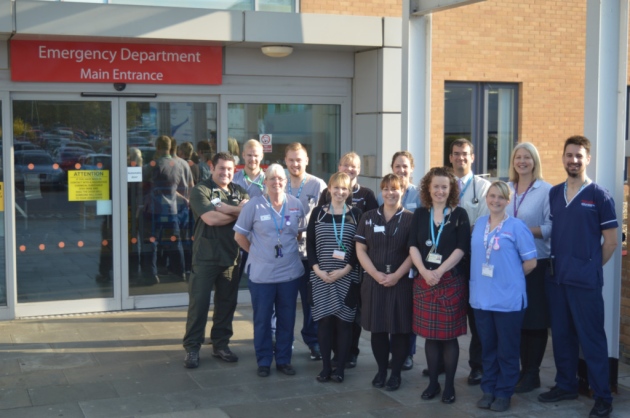Category Archives: Older care
Country’s first emergency department for over 80s to open in Norfolk

Members of the NNUH Emeregncy care team and Older People’s Medicine. Photo: NNUH
The county’s busiest hospital is to become the first in the UK to open an emergency department (ED) specifically for the elderly.
The Norfolk and Norwich University Hospital (NNUH) announced innovative plans to transform the way it delivers emergency care and will open the first A&E dedicated to patients over the age of 80.
From the end of November, when a patient over 80 years old arrives at the NNUH ED, they will go straight to the older people’s ED, where there will be a multi-disciplinary team consisting of ED consultants, consultant geriatricians, and emergency and older people’s medicine nurses waiting to provide care for them.
Currently around 50 patients a day aged 80 or over visit A&E, and the new department will cater for around this number.
No Christmas Holidays for Family Carers

The Carers Association urges families and friends not to forget family carers this Christmas
The Carers Association is appealing to people across the country not to forget Ireland’s 187,000 family carers this Christmas. With Ireland facing an aging population in a time of mass emigration and 6,500 children providing care to family members, family carers have never needed support more.
Family carers provide unpaid care to society’s older people, those terminally ill and children and adults with disabilities – yet they have no legal entitlement to holidays, breaks or a day off from this demanding role, even at Christmas.
Life on a low income in the UK today
Part of Solve UK poverty
Making ends meet when you have very little is extremely hard work. More than one in three families in the UK today – over two million families – have an inadequate income.
A new report by Loughborough University for JRF Falling short: the experiences of families living below the Minimum Income Standard looks at 30 families who are all living below the Minimum Income Standard (MIS). This is an income level determined by regular research asking the public what they think is required for an acceptable living standard in the UK today – including social participation as well as physical essentials. Some are managing to get by, but can’t imagine being able to stretch to a day trip or low cost family holiday. Others struggle to afford material necessities like food and school uniforms.






